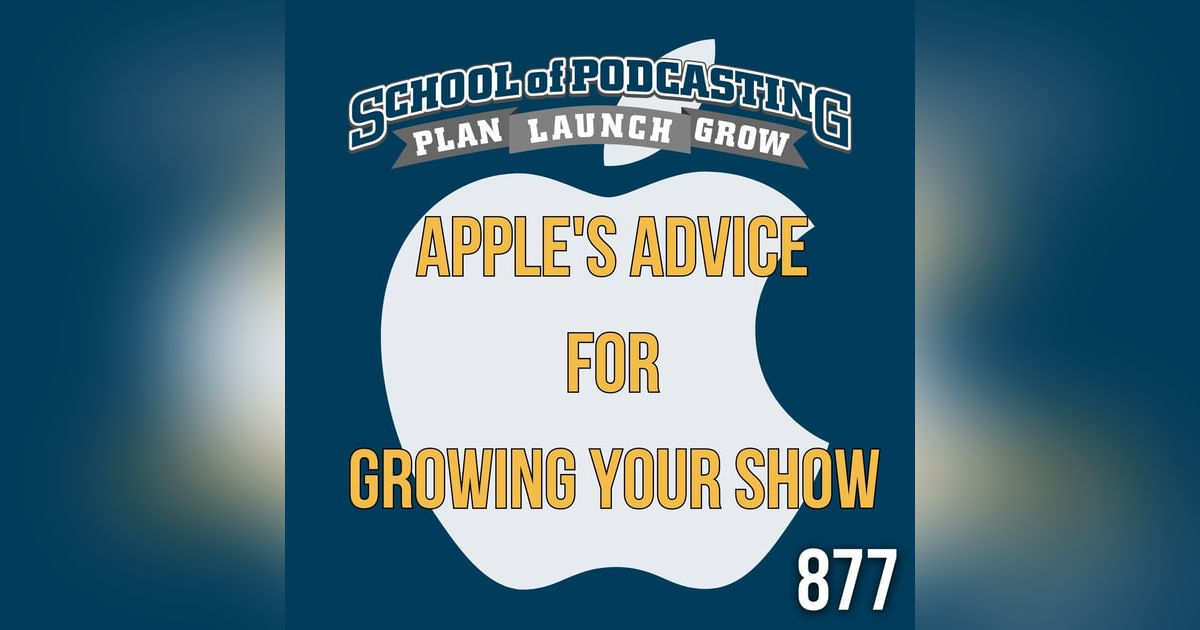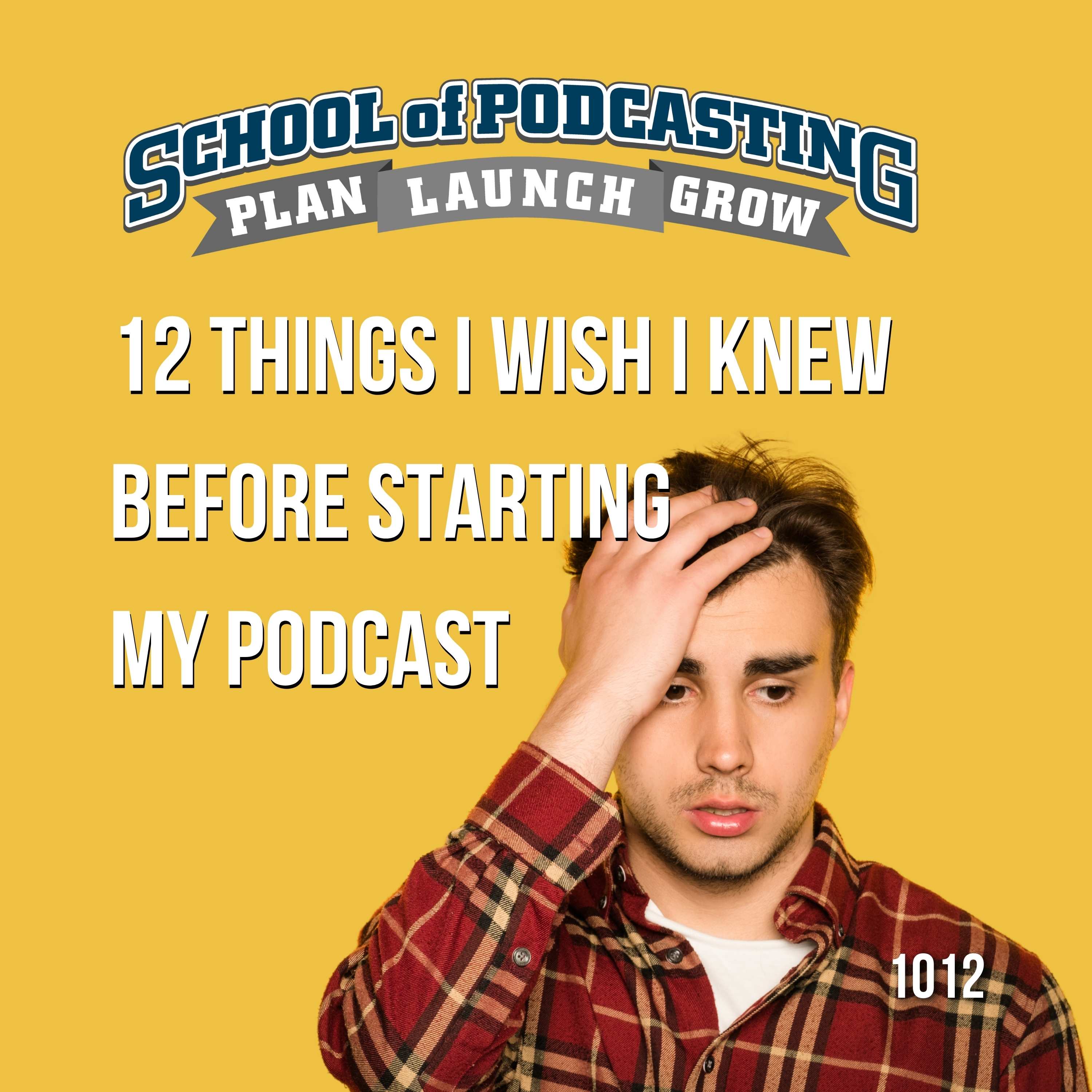Apple's Advice for Growing Your Podcast

I looked for a new podcast and never really found what I wanted (a daily motivation podcast of 5 minutes or less). What I did find as I search floored me in some cases. I thought, "Are people still doing/saying that?" I did some research on some subjects and found out some things as well.
Ready To Start Podcasting? Join the School of Podcasting Community
Are you looking to start your own podcast but don't know where to begin? Look no further than the School of Podcasting. Our comprehensive online courses and one-on-one coaching will teach you everything you need to know, from equipment and editing to marketing and monetization. With our proven methods and unlimited one-on-one consulting, you'll be creating high-quality, engaging content in no time. Say goodbye to the frustration and uncertainty and hello to a successful podcasting career with the School of Podcasting.
Use the coupon code schoolofpodcasting.com/listener to save 20%
Podcasting Is "Too Crowded," and Someone Is Already Doing a Podcast Like Yours
When you look at Podcastindex.org, you will see (today) 4,088,299 and only 253,396 have produced an episode in the last ten days (6%) and that only goes up to 13% if you include the 523,942 shows that produced an episode in the last 90 days.
Time and time again, I found a podcast that I thought would fit my criteria, but they either had 2 episodes (and quit) or had many episodes but quit in 2021. So if you see a large number of podcasts in the genre you are looking to be in when you launch, it may not be as crowded as you think. Many of the dead shows are from Spotify for Podcasters users (formerly Anchor) who "tried podcasting" and then quit (and being a free service, the files have not been removed).
Horrible Episode Titles
This would be a horrible example of an episode title for the episode:
Episode 878 Dave Jackson School of Podcasting
If you must use episode numbers, I recommend putting them at the end of the name.
When I look at Tim Ferris' show, he has extremely long episode titles, and when you first look at his show (where you can see all the episode titles), they seem to get cut off after 167 words.
I've heard other people recommend 60-80 characters for your title, and that goes against
Unhelpful Artwork
I see people who put a microphone on artwork about mental health. This would be like putting a camera on every movie poster. It's not needed, as is the word "Podcast" in your title. Does your artwork help people know what your show is about before they hear it?
Rating and Reviews Nonsense
From Apple's website:
Although ratings, reviews, and shares also help indicate a podcast’s newness, popularity, and quality, they are not factored into the algorithm that determines the rankings for Top Shows and Top Episodes. In other words, they may not help people find a podcast on their own, but they influence whether people will listen or follow, and those factors influence the charts. -source
Poor Descriptions
Again from Apple:
Your description should tell listeners what kind of content you talk about and explain how people can benefit from listening. If you need a little help, think about how you can convey the problem you’re trying to solve in a way that convinces listeners they should care. -source
Guests With Really Bad Audio
I get it when it's an A-list guest, but with anybody else, you need to keep in mind it is YOUR show and YOUR brand that takes the hit. See this episode.
QUESTION OF THE MONTH
This month's question is open-ended. This could be software, hardware, etc. What is your favorite tool? What is the thing that has you saying, "Oh, I'm so glad I have this!" What is your favorite tool?
Leave Your Answer at www.schoolofpodcasting.com/question
I need your answers by 6/26/23
Where I Will Be?
I look forward to seeing you all; please come up and say hi. To see my full itinerary, go to schoolofpodcasting.com/where
Mentioned In This Episode
Join the School of Podcasting Community
Previous Episode: Have I Underestimated the Power of Apple Podcast Reviews?
Beating Podcast Burnout with Dave Jackson: Setting Real Expectations (Part 1)

